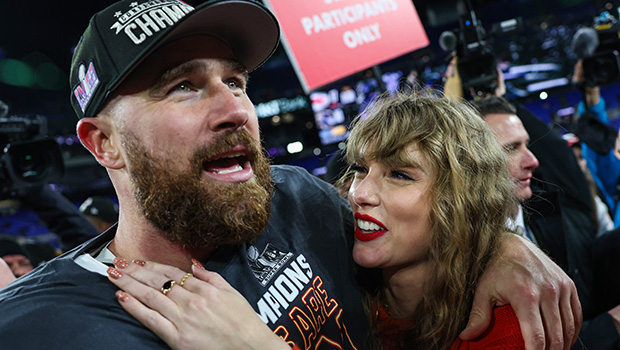On the surface, Viet Thanh Nguyen’s The Sympathizer is the perfect target for adaptation.
First off, it’s a novel — one of the more lucrative source materials for an industry perpetually hungry for existing IP and a built-in audience.
Second, it’s a Pulitzer Prize winner, a badge of honour that already proved a boon for similar adaptees like Spotlight, Driving Miss Daisy and Glengarry Glen Ross.
But in reality, there was a problem. Not only is the story complex — following a supposed communist double agent as he travels back and forth between America and Vietnam during the Vietnam War — it is also deeply tied up in representation and culture.
“The literary industry and the entire social and cultural system of the United States work to tempt writers of colour into writing for white people,” Nguyen was quoted as telling the Guardian after his Pulitzer win in 2016.
“If I had written the book for a white audience, I would have sold it for a lot more money and many more publishers would have been bidding for it.”
WATCH | The Sympathizer trailer:
Ngyuen did sign on to work on the HBO adaptation and even recently pulled over on the side of the road to take pictures with his family in front of the billboard.
But that excitement with the final product does not erase the difficulty in bringing to the small screen a story so focused on the experience of Vietnamese people. Making it no less difficult was the fact that one of the series co-creators, Don McKellar, is from halfway across the world.
“It’s obviously not my heritage,” said McKellar, the Canadian actor and creator known for The Red Violin, Blindness and a slew of Canadian television.
“It’s the story about Vietnam after the Vietnam War, the Vietnamese diaspora community. That’s — no, I’m not associated with that.”
Canadian influence
He first got the call when his old friend and now co-creator Park Chan-wook — recalling their past experience writing a screenplay together — asked McKellar to help shoulder the burden.
After reading the book — which focuses on a half-French, half-Vietnamese man who feels so conflicted and at war with his identities that he describes himself as a “man of two minds,” McKellar began to see that obstacle as more like a benefit.
Being from Canada, he said, gave a unique mirror to at least feeling like an American, but somewhat removed.
“We have this sort of distance on America, and we do feel like we’re in the middle sometimes,” McKellar said. “So I think we are well equipped for it.”
That feeling was injected everywhere into the finished product. It also informed how they could bridge the gap of what was primarily a dark story of oppression, war and pain that was told in a sardonic, wry voice.
That was accomplished partially by hiring Robert Downey Jr. for quadruple duty — the actor holds down four roles in a psychedelic sort of comedy that only comes together in the finale.
Downey Jr. was the first name considered for the role, McKellar said, as it required a technically skilled actor who could do more than “only play themselves.” And after a meeting with McKellar, in which the actor riffed, improvised jokes on the characters and scenes, he was immediately hired.

Casting the Captain
But the most important role was the star — the Captain. It required a young, physically fit man who could speak both English and Vietnamese better than average — not to mention be a talented actor.
McKellar said they were initially spoiled for choice, but eventually landed on Hoa Xuande, an Australian of Vietnamese background.
On The Coast11:27Author Viet Thanh Nguyen on bringing The Sympathizer to life
Pulitzer Prize-winning author Viet Thanh Nguyen speaks with guest host Amy Bell about the importance of refugees telling their stories, and what he hopes people will take away from the upcoming TV show The Sympathizer, based on his book and life.
After landing the role, Xuande had to go through a two week “crash course” to relearn both his language and heritage.
Growing up in Australia, he said he felt a complicated — but strong — connection to the country, and never felt comfortable speaking Vietnamese.
And once again, something that was a hurdle became an advantage.
“That’s the duality that you see within the Captain, that he’s never this enough and it’s never that enough,” Xuande said.
“You know, what part of himself does he identify with more? What parts of himself does he love or hate? And that was something that I felt like I didn’t have to play too hard. It was inherent in me when I read the book.”

‘Put yourself on the other side’
The book reads as a confession personally written by the Captain, so including the character’s voice was important. And though the narration does carry over into the series, there were some changes necessary for a TV adaptation.
Trying to take that inherently personal storytelling from the page to the screen presented more of a problem than usual, as the show grapples with a complex war told from the perspective of a man sympathizing with, and finding fault in, every element — without ever knowing where he belongs.
Their goal in creating the series, McKellar said, wasn’t to avoid that, but to exploit it.
“It’s saying ‘Put yourself on the other side.’ And there’s always another side,” he said. “It’s important to understand if we’re going to have any empathy or objectivity, when we discuss wars, [when] we discuss anything.”
“It’s sort of liberating, ultimately, to throw aside those sort of preconceived ideas we have. And I think, I hope, that’s what people get from it.”







